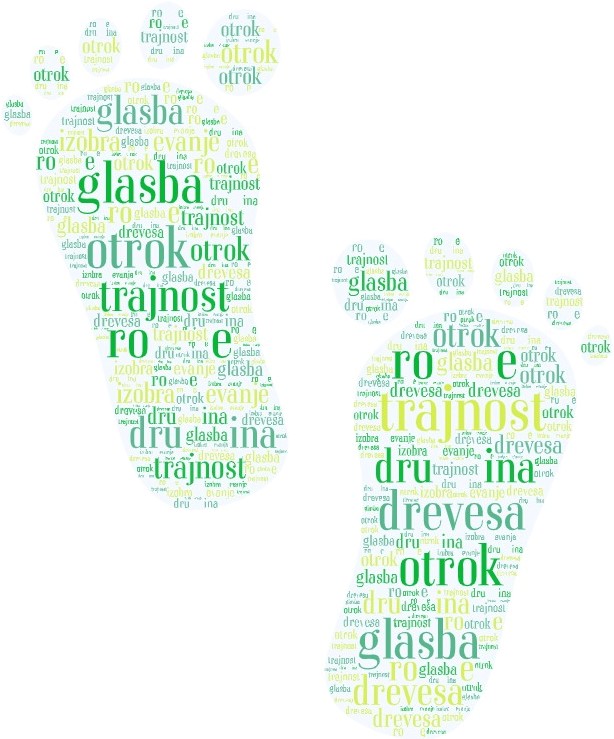The Journeys to “Green Europe”
PROJEKT ČÍSLO: 2020-1-CZ01-KA229-078314
In 2019, the EU drew up proposals for a “Green Agreement for Europe”. In order to secure measures of a sustainable EU economy, citizens can be educated regardless of age, as reflected in the project’s name and its impact. The theme: Climate change and environmental problems was announced on eTwinning. The eTwinning project, which is in the Circular Economy Concept, which is suitable for a sustainability perspective, takes the example from nature.The theme for 2020: Climate change and environmental problems was announced on eTwinning.
The project uses eTwinning, based on the Circular Economy Concept, which is a new perspective on sustainability and is based on nature approach.
Slovenia is a beautiful country, connected with the Czech Republic historically. Both nations have need for cooperation and communication for “Green Europe”. Environmental education is realized at both schools as it is one of their priorities and has also become an incentive for partnership.
The long-term goal of the EPR partners is a modern European school open to innovation in the European area, focusing on environmental and multicultural education through the use of activating teaching methods (eTwinning, EPALE, etc.).
Both schools are facultative, guaranteeing the practice of university students in the CZ as well as in Slovenia, each partner uses a different activating teaching methods in the project.
The aim of the joint project is to mutually optimize environmental education for “Green Europe”, promote the EU’s linguistic diversity and intercultural awareness.
The aim of the project is not to create a case study of environmental education, but above all to learn together and
motivate each other to use activating teaching methods and forms of work in various environments. To verify their
application in international conditions, not only through the mobility of employees (10 workers of different professions) and pupils (16 pupils of the 3rd to 9th grade) from each school, but also indirectly involved participants (about 500, teachers, pupils from all grades, students in practice, parents and representatives of the general public), especially in the impact of dissemination events. Transnationally eTwinning, Epale and ERASMUS + platform.
Partial goals: improving professional and language competences, including ICT, integrating newly acquired learning methods and forms into subjects, improving foreign language learning and teaching, developing managerial competencies, developing creative and critical thinking.
Participants will receive an Euopass mobility and language passport.
The project “Journey to Green Europe” was created at the Arménská Elementary School in Brno in cooperation with teachers, members of the Czech-Slovenian Society and the University of Ljubljana, who contacted the partner organization of the Naklo elementary school in Slovenia. The basic idea is to get to know each other, share information, experience, make friends and build collaborative activities between the staff and pupils of both partner schools, at first in a secure virtual learning environment like the TwinSpace in the eTwinning project. Here, workers and students can prepare activities for each other and subsequently evaluate environmental education during mobility while learning communication (including foreign languages) and ICT skills.
The perspective of the circular economy will be applied to the results of the successful project “Edible School Garden” of the primary school in Arménská Elementary School in Brno. In experiential learning, participants in the activities of international mixed groups will further develop it and utilize it wherever possible by carrying out virtual and practical mobility activities. To further deepen the understanding of the principles of cycling and conditions in nature, teams, virtually and in different environments for environmental education in nature, will implement activating teaching methods, observation and experimentation.
In order to achieve the objectives, mobilities will be main source of exchange of practical experience. Employee will join short-term joint trainings and pupils short-term exchanges, twice in the partner country and always for 6 days. Based on experience, a model for the Slovenian elementary school Naklo will be created as well.
The project will be multilingual. Participants will teach and learn in English and practice the basics of the partner’s language.
At the meetings (10 times) and on the school website, participants will share their experiences with other staff and
students through four movies, which will be created. With pupils and students from local schools, parents and the
general public project will be presented at four meetings and four times in the press, internationally at eTwinning and EPALE.
The output of the project will be transfer of experiences and international school cooperation in the environmental education didactics based on “Green Agreement for Europe” strategy.

Nedavni komentarji